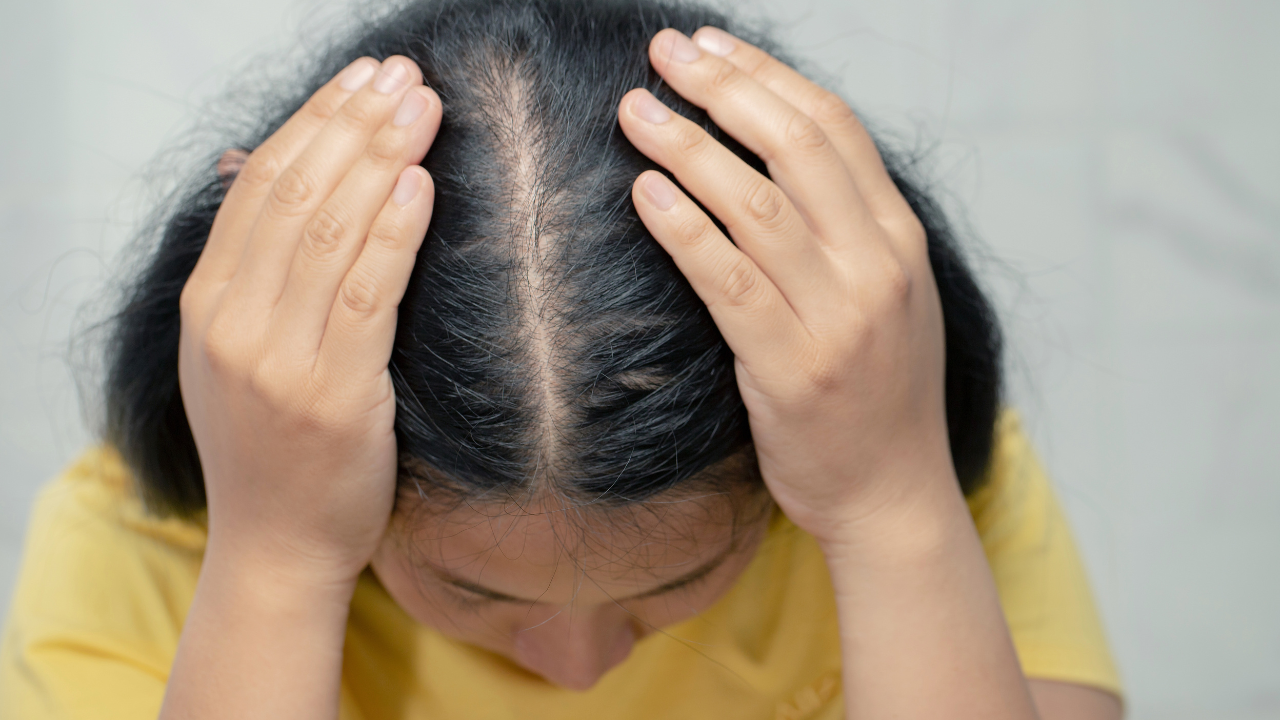The thyroid gland and immune system both depend on the multipurpose mineral selenium. Our health can be seriously threatened by both an overabundance of selenium and a deficiency. You will experience unpleasant physical and psychological effects from a deficit. However, your body will exhibit some signs that denote a selenium deficiency:
Tiredness
Unfortunately, this vague symptom is rather prevalent with many mineral deficits. It’s commonly linked to selenium deficiency as well and could be related to how this mineral affects your thyroid’s proper function.
Hair fall
Hair growth and regeneration are significantly influenced by thyroid hormones. Thyroid hormone synthesis is slowed in the absence of selenium. Your hair may fall out more quickly than usual as a result of the cells in your hair follicles reacting to this decrease in thyroid hormone.
Recurring sickness
Selenium helps the immune system work normally, which reduces your vulnerability to illness and infection. You are more susceptible to illness because of a compromised immune system when you have a selenium deficiency since immunity is not supported. Therefore, to get that extra boost, you could need immune system vitamins.
Muscle weakness
The mineral plays a key role in thyroid hormone synthesis and metabolism, which is the process by which food is converted into energy. Your muscles will not receive enough energy from your diet to feel powerful and sustain you if you are unable to obtain energy from your meals. For this reason, muscle weakness may result from a selenium shortage.
Magnesium
has advantages for muscles that can ease tension and aid in post-exercise recovery. Another indication of a vitamin D insufficiency is weak muscles.
Brain fog
If your selenium consumption falls to the point of deficiency, you may experience mental fog. This happens because selenium is needed to make selenoproteins, which directly support cognitive function. Although this symptom is also generic, when combined with other symptoms, it may aid in your doctor’s diagnosis. Additionally, the research suggests that elderly persons with low selenium levels performed worse on cognitive tests.
How to treat selenium deficiency
Aiming to consume more foods that are high in selenium is the first line of treatment for selenium deficiency. Foods high in selenium include:
Brazil nuts (544 mcg per oz or 6 to 8 nuts, or 989% of the DV)
yellowfin tuna (92 mcg per 3 oz. serving, or 167% of the DV)
canned sardines, bones included (45 mcg per 3 oz serving, or 82% of the DV)
Red meat steak (33 mcg per 3 oz serving, or 60% of the DV)
Red meat liver (28 mcg per 3 oz, serving, or 51% of the DV)
brown rice, cooked (19 mcg per cup, or 35% of the DV)
baked beans (13 mcg per cup or 24% of the DV)
whole wheat bread (13 mcg per slice or 24% of the DV)
What is the best selenium supplement?
The body absorbs supplements that contain the chemical selenomethionine. Avoid taking selenium and vitamin E together since, in males without a selenium deficit, vitamin E may raise the risk of prostate cancer. Taking more
selenium supplements
when your selenium levels are at their best may also raise your risk of developing cancer. Yellow complexion, hair loss, and foul breath are all symptoms of selenium toxicity.
Understanding Diabetes Reversal: Can Diabetes Be Reversed? Will It Return?
I’m Manas Ranjan Sahoo: Founder of “Webtirety Software”. I’m a Full-time Software Professional and an aspiring entrepreneur, dedicated to growing this platform as large as possible. I love to Write Blogs on Software, Mobile applications, Web Technology, eCommerce, SEO, and about My experience with Life.





